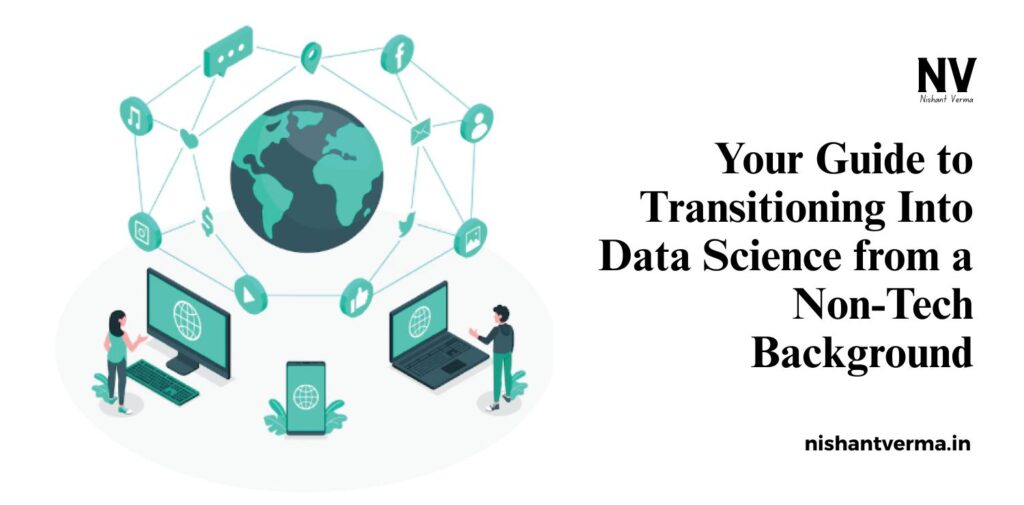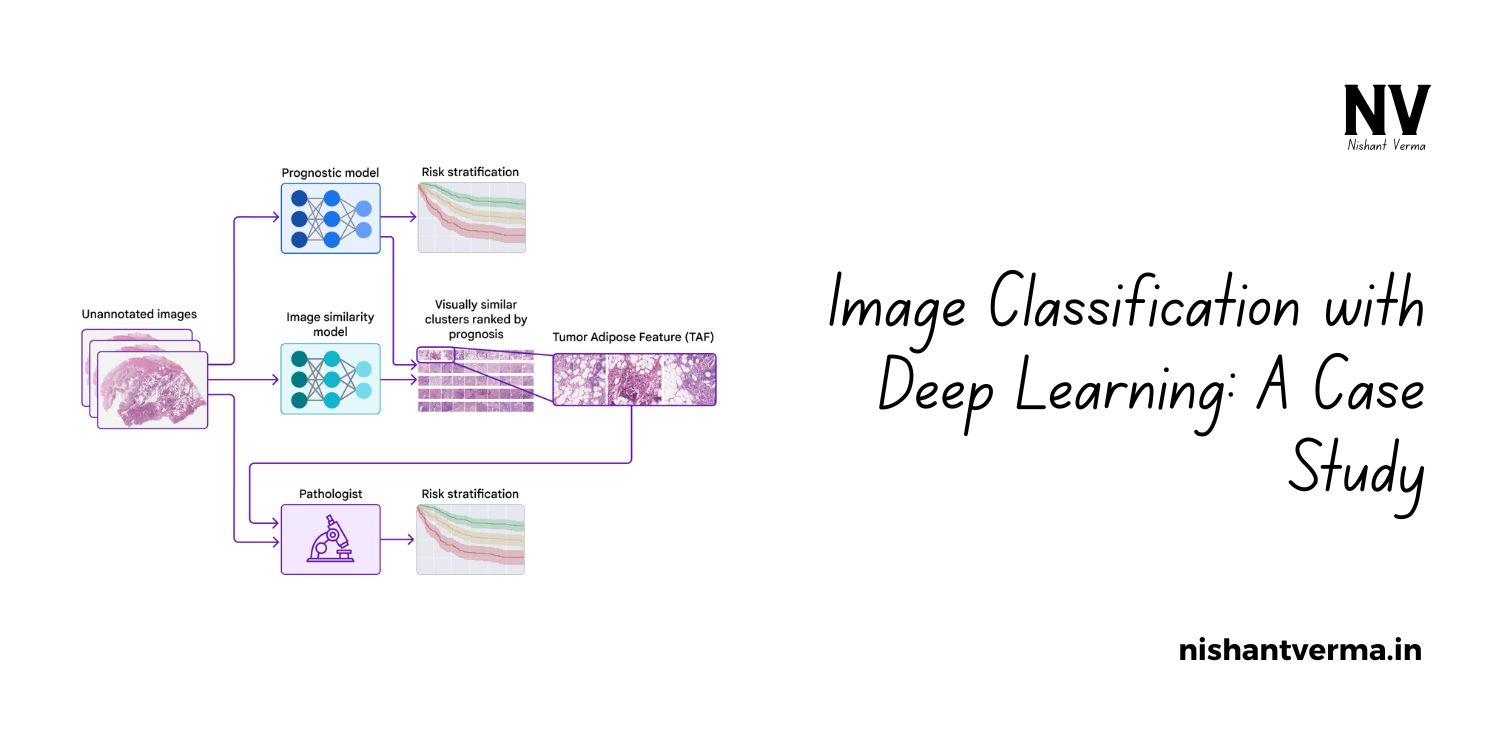In today’s world, data is everywhere. From mobile apps to hospitals, from cricket scores to your Swiggy orders—everything runs on data. Naturally, the need for experts who can understand, analyze, and use this data is growing every day. This is where data science comes in. The good news is, even if you don’t come from a technical background, you can still make a successful career in data science. Many people in India from fields like commerce, humanities, arts, and even law have made this switch. So if you’re wondering, “Can I become a data scientist without coding knowledge or an engineering degree?”—the answer is yes.
Let’s understand how you can begin your journey into data science step-by-step, even if you don’t come from a tech or engineering background.

Understand What Data Science Actually Is
Before jumping into learning, it’s important to understand what data science is all about. In simple terms, data science is the process of using data to make decisions or predictions. It combines three major areas: statistics and mathematics, computer programming, and business or domain knowledge.
Let’s break that down:
- You need statistics to understand patterns in data.
- You use programming (usually Python or R) to clean and analyze the data.
- And you need domain knowledge to understand what the data actually means in a real-world context.
So, even if you’re not from a technical background, if you’re strong in logical thinking and are ready to learn a few new tools, you’re already halfway there.
Pick the Right Skills to Learn First
Since you’re starting fresh, it’s easy to get confused with all the online advice and long lists of tools. The key is to start small and build gradually.
Here’s a simple roadmap for beginners:
- Excel and Basic Statistics – Most non-tech professionals already know Excel, which is great. You can begin by understanding basic statistical terms like mean, median, mode, standard deviation, and probability.
- Python Programming – Python is beginner-friendly and widely used in data science. You don’t need to become a full developer. Just learn the basics: variables, loops, functions, and libraries like pandas and matplotlib.
- SQL – This is the language used to get data from databases. Learning basic SQL queries like SELECT, WHERE, and JOIN will be very helpful.
- Data Visualization – Learn tools like Tableau, Power BI, or even Excel charts to present your findings in a simple and beautiful way.
- Machine Learning (Optional for Starters) – Once you’re confident with the basics, you can start learning how to build models using algorithms. This step comes later and can wait until you’re comfortable with Python and data analysis.
Choose Learning Platforms That Suit You
There are many free and paid resources available online. Here are some that are popular and trusted in India:
- Free Platforms: YouTube (channels like Krish Naik, StatQuest), Kaggle (for hands-on projects), and Coursera (free courses with financial aid).
- Paid Platforms: UpGrad, Great Learning, Simplilearn, and Scaler offer beginner to advanced-level data science courses tailored for Indian learners. You can also consider enrolling in part-time or weekend courses if you’re working.
Always look for courses that include practical assignments, case studies, and placement support.

Work on Real-Life Projects to Build Confidence
Reading theory is one thing, but applying it is what makes the real difference. Once you have some basic knowledge, start doing small projects.
Here are some project ideas:
- Analyze IPL match data and predict top performers.
- Study Swiggy or Zomato order data and find customer trends.
- Use COVID-19 data to analyze recovery rates in different Indian states.
- Create dashboards that show income vs expenditure for households.
You don’t need perfect data or fancy tools. Start with datasets from Kaggle or government websites, use Excel or Google Sheets if needed, and slowly upgrade as your skills grow. Building a small portfolio like this will give you confidence and also help in job interviews.
Network and Learn From the Community
The best way to grow is by connecting with others on the same journey. Join data science groups on LinkedIn, Telegram, or Discord. Follow data science experts on Twitter and YouTube. Participate in competitions on Kaggle.
There are many communities like Data Science India, Women in Data Science (WiDS) India, and Analytics Vidhya where you can ask doubts, share projects, and even find mentors. Attending webinars and online meetups will also keep you updated with industry trends.
Look for Entry-Level Roles That Match Your Skills
You don’t need to wait until you become an expert to apply for jobs. Start looking for roles like:
- Data Analyst
- Junior Data Scientist
- Business Analyst
- Reporting Analyst
- MIS Executive
Many companies are open to hiring freshers or career switchers if you can show good understanding and project work. Startups, EdTechs, and consulting firms are usually more flexible with qualifications. Focus more on building your portfolio and practicing interview questions.

Stay Consistent and Be Patient
Switching to a new career takes time. Some people make the move in 6 months, others take a year. Don’t rush or compare yourself. Set small weekly goals. For example:
- Week 1: Learn basic Python syntax.
- Week 2: Try small Python exercises.
- Week 3: Understand statistics concepts.
- Week 4: Analyze a sample dataset using Python.
Stay consistent and don’t worry about making mistakes. Every small step brings you closer to your goal.
Final Thoughts: You Don’t Need a Tech Degree to Become a Data Scientist
In India, the job market is opening up for skilled professionals, regardless of their educational background. What matters is your ability to understand data and solve problems. If you come from a non-tech field, your unique background can actually be your strength. You can bring new perspectives to industries like finance, healthcare, education, or even journalism.
All you need is the will to learn, the patience to practice, and the courage to begin.
So take that first step today. Your journey into data science is waiting—and you don’t need to be an engineer to walk the path.




